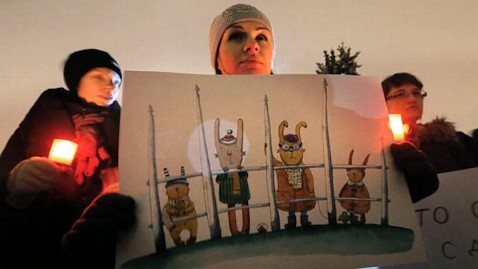BEIJING: China has approved new rules that require Internet users nationwide to provide real-name identification, state media reported on Friday, as the government increases its already tight online grip.
The National People's Congress (NPC), the country's legislature, adopted the measures at a meeting on Friday, the official Xinhua news agency and other media said.
According to Xinhua, the decision, which came at the end of a five-day session of the NPC Standing Committee, requires Internet users to offer their names as identification to telecommunication service providers when seeking access to their services.
"Network service providers will ask users to provide genuine identification information when signing agreements to grant them access to the Internet, fixed-line telephone or mobile telecommunication services or to allow users to post information publicly," Xinhua said, quoting the decision.
Popular microblogging sites similar to Twitter have been used in China to air grievances and even to reveal wrongdoing by officials, and such muckraking is tolerated when it dovetails with the government's own desire to rein in corruption.
But with more than half a billion Chinese now online, authorities are concerned about the power of the Internet to influence public opinion in a country that maintains tight controls on its traditional media outlets.
Beijing already regularly blocks Internet searches under a vast online censorship system known as the Great Firewall of China, but the growing popularity of microblogs, known as "weibos", has posed a new challenge.
The firewall has been built up over time since the Internet began to develop in China, and uses a range of technologies to block access to particular sites' IP addresses from Chinese computers.
Censors also keep watch on the weibos that have been used to organise protests and challenge official accounts of events such as a deadly 2011 rail crash that sparked fierce criticism of the government.
Dissident artist and fierce government critic Ai Weiwei on Friday criticised efforts to hinder Internet discourse.
"Blocking the Internet, an action that will limit the exchange of information, is an uncivilised and inhumane crime," he said on Twitter, which is banned in China, but accessible for Internet users with more sophisticated equipment.
Li Fei, a senior member of the legislature, said on Friday that there was no need to worry that the new rules could hinder citizen exposure of wrongdoing, Xinhua reported.
"Identity management work can be conducted backstage, allowing users to use different names when posting material publicly," Xinhua further quoted him as saying earlier this week.
Previously, only microblog users in five cities -- the capital Beijing, the commercial hub of Shanghai, the northern port city of Tianjin and the southern cities of Guangzhou and Shenzhen -- were required to provide their real names under a trial that started a year ago.
In the past, users had been able to set up microblog accounts under assumed names, making it more difficult for authorities to track them down, and allowing them to set up new accounts if existing ones were shut down.
It was not immediately clear if users would be able to find ways to skirt the requirement, though according to Xinhua, the trend has been towards registration.
It said that by last month, nearly all fixed-line users and 70 percent of mobile users had registered with their own names, citing figures from the Ministry of Industry and Information Technology.
The ministry, which regulates the online sector in China, said in June that the then-proposed legal changes were needed to protect state security.
Xinhua, in a separate commentary on Friday, said the new rules are meant to defend the legal rights of Internet users "and will help, rather than harm, the country's netizens" by, for example, protecting their privacy.
-AFP/ac










